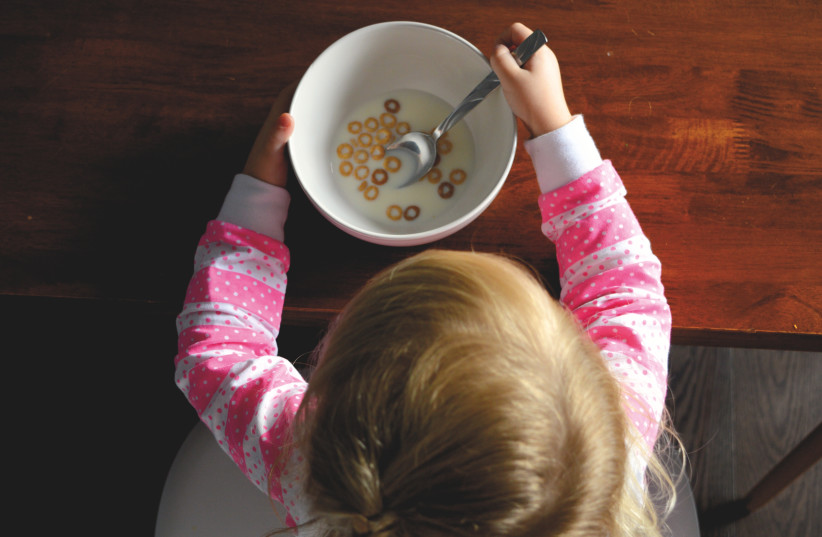The common belief that eating a big breakfast and a light dinner helps people burn more calories daily may be wrong. A new study just published in the journal Cell Metabolism found that eating most of one's calories in the morning doesn't help with weight loss any more than eating those calories in the evening.
The findings were based on a controlled trial involving 30 adults in the UK who were overweight or obese. For four weeks, participants followed one of two diets: About half ate 45% of their daily calories at breakfast, 35% at lunch and 20% at dinner. The second half ate 20% of calories at breakfast, 35% at lunch and 45% at dinner.
The groups then switched to the opposite diet for four more weeks.
Both groups had slightly more than 1700 calories per day. Large breakfasts included cereal, toast, eggs, sausages, smoothies and yogurt. Large dinners were beef and mushrooms with rice, pasta bolognese or pork chops with potatoes and peas.
In most nutrition studies researchers don't provide meals or menus to study participants, so the current study offers a rare look at how one factor, the timing of a person's largest daily meal rather than the food, affects metabolism and weight loss.

Finally, researchers checked how much weight each group participant lost after four weeks of the big breakfast diet and the big dinner diet. The results were the same: around 3 kilograms.
This clearly shows that people don't burn more calories from eating a large breakfast, according to Dr. Courtney Peterson, a nutrition science expert at the University of Alabama at Birmingham who wasn't involved in the study. Peterson stated that results show that timing meals doesn't have a magical fat-burning effect.
How did bigger breakfasts affect the participants?
Yet, study participants said they felt less hungry during the day when they ate the bulk of their calories at breakfast. So it's possible that big breakfasts can help with weight loss over longer periods of time by reducing appetite, Peterson said.
She added that to lose weight, one needs to burn more calories or eat less. So, if people are satiated they eat less which usually translates into weight loss.
Besides weight loss, there are other good reasons to eat a big breakfast. The first is that breakfast breaks the fast from the night and helps us to be more alert, calm and focused.
Also, people are more sensitive to insulin in the morning so an early meal may help regulate blood sugar levels. Yet eating too late at night, from around 20:00 onwards, may raise blood sugar levels and cause people to store more energy as fat.
